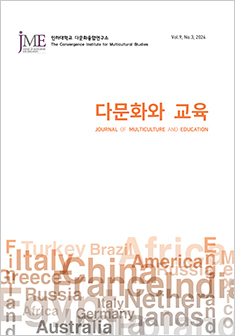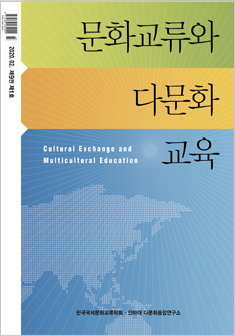
논문검색
HOME 학회지 논문검색
다문화와 교육(Journal of Multiculture and Education), Vol.8 no.3 (2023)
pp.17~33
The Philosophical Meaning of Intercultural Communication and Critical Literacy in Terms of Language, Reflection, and Critique of Power
This article discusses that despite starting from different problem situations and having different intellectual backgrounds, intercultural communication and critical literacy theory can be linked in terms of language, reflection, and critique of power as their philosophical premises. First, in intercultural communication, language is the medium of communication and has pragmatic premises. Based on the rationality inherent in language, intercultural communication seeks to reach consensus and understanding without coercion between different cultures. In critical literacy, language is the medium for world understanding and critical thinking. Thus, literacy education changes the very way one relates to oneself and the world. Second, the subjects living in the culture communicate with the heterogeneous culture through rational self-understanding and critical reflection on the culture. This aspect of critical reflection is important not only in intercultural communication, but also in critical literacy. In particular, Freire's pedagogy emphasizes the cultivation of critical consciousness through literacy. Third, intercultural communication implies the critique of unjust power based on formal and material ethical principles. Critical literacy aims at problem-posing education, criticizing bank-deposit education that hinders genuine democratic dialogue. Seen through this connection, the philosophy of intercultural communication highlights the philosophical implications of critical literacy, and critical literacy can also help clarify the direction of intercultural communication.
 다문화와 교육(Journal of Multiculture and Education)
다문화와 교육(Journal of Multiculture and Education) 문화교류와 다문화교육
문화교류와 다문화교육